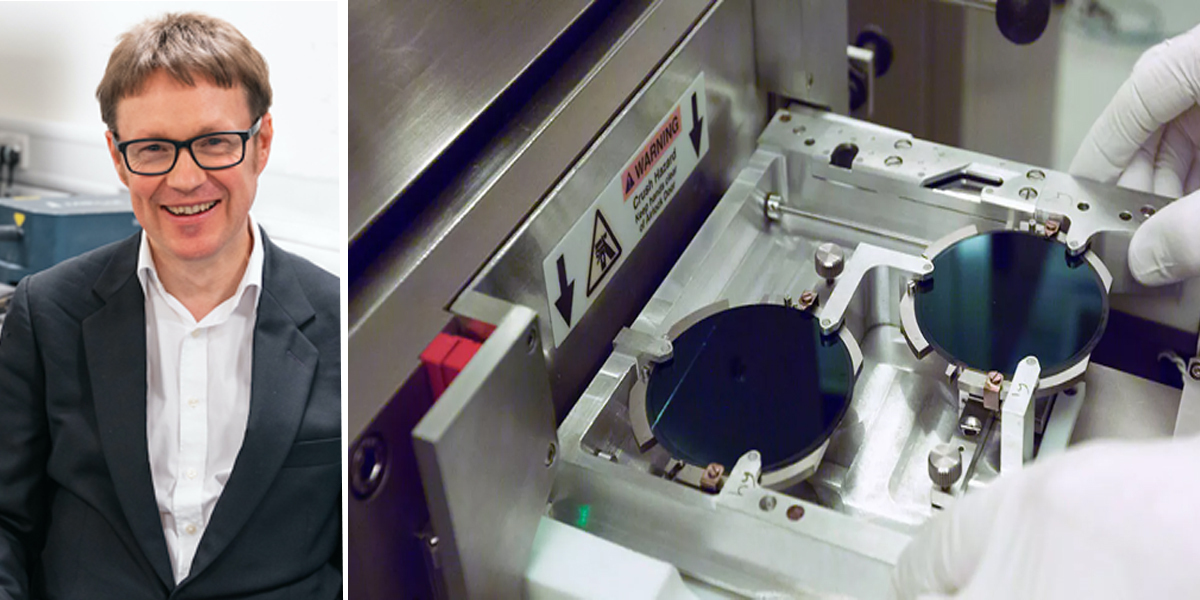University of Glasgow researchers are playing a leading role in delivering quantum technologies that will be key for resilient Position, Navigation and Timing (PNT) systems for use in transport, finance, communication systems, national security and critical national infrastructure

A team led by Professor Douglas Paul of the University’s James Watt School of Engineering is one of five new quantum technology hubs across the UK announced in July. Known as the UK Hub for Quantum Enabled Position, Navigation and Timing (QEPNT), it will receive £21.9 million over the next five years to develop smaller, lighter quantum-enabled devices for new applications in sectors including roads, railways and underground transport.
Such devices could help improve pathfinding systems by replacing current GPS positioning technologies. They could also enable improved indoor navigation on mobile devices, and upgrade the positioning systems in submarines, allowing them to operate for months without surfacing to reconnect with satellites.
Quantum technologies are key to making sensors that can precisely measure time, acceleration or gravity. Time and acceleration are key to making compact navigation systems that can work when the GPS satellites have failed or are out of sight.
These sensors can be based upon compact lasers used to trap and control cold atomic vapours. The sensors can also be based upon small mechanical devices similar to springs or pendula that are fabricated from silicon. These sensors can additionally be used to measure the subtle changes in gravity that result from buried pipes, water resources, or even volcano hazards.
Resilience is becoming a key issue for PNT applications says Professor Paul, and where the nanowatt signals transmitted by existing GPS satellites are very easy to jam.
Currently, resilient navigation in a GPS-denied or compromised environment relies on inertial navigation, dead reckoning and signals of convenience. High end inertial systems are large, heavy, power-hungry and expensive, all of which limits their use. “Government reports have demonstrated that £5.2 billion of the UK economy could disappear over a five-day period if GPS signals are jammed. So we want to build quantum sensors that are much more robust, much more accurate, and to a size that, ideally, would go inside your mobile phone,” says Professor Paul.
The University’s James Watt Nanofabrication Centre will play a leading role in supporting the development of such sensors says Professor Paul. “With all the telecoms work that we do, it’s the ideal place to deliver small lasers, rubidium cells and diffraction gratings whereby we can trap atoms and measure their quantum properties for rotation, acceleration and gravity.”

The new quantum hubs are delivered by the UKRI Engineering and Physical Sciences Research Council (EPSRC) , with a £106 million investment from EPSRC, the UKRI Biotechnology and Biological Research Council (BBSRC), UKRI Medical Research Council (MRC), and the National Institute for Health and Care Research (NIHR). Industry collaboration is a key element to all of the hubs, which leverage significant cash and in-kind contributions from partners worth more than £54 million.
As well as organisations such as the Department for Transport, the Royal Institute of Navigation, Transport for London, the Royal Navy, the Fraunhofer Institut, Technology Scotland, and The UK National Authority for Counter-Eavesdropping, more than 30 companies partnered with the QEPNT hub at the proposal stage including Airbus, Leonardo UK, Toshiba, Thales, BAE Systems and Oxford Instruments.
As well as the University of Glasgow, researchers from Imperial College London and the Universities of Bristol, Cambridge, Edinburgh, Warwick, Strathclyde, Loughborough, Heriot-Watt, and Queen’s University Belfast are all contributing to the work of the QETNP hub. For example, researchers from Loughborough’s newly-launched Emergent Photonics Research Centre will focus on developing the next generation of timing devices using micro-lasers known as microcombs, which serve as the ‘counter’ for future portable atomic clocks.
Professor Alessia Pasquazi, Loughborough’s QEPNT lead, said: “This is an exciting chance to bring real change to people, capitalising on the scientific developments of the last 10 years and deliver the first prototypes in critical navigation applications.
The hubs continue the work of the UK National Quantum Technologies Programme. Now in its tenth year, the partnership of more than £1 billion between government, academia and industry, fast-tracks quantum knowledge from laboratory to wider society and economic impact.
Subscribe to our newsletter
Stay updated on the latest technology, innovation product arrivals and exciting offers to your inbox.
Newsletter

